About this course
Excellent research opportunities await at the School of Sport and Exercise Sciences, enabling you to work at the forefront of developments with leading experts.
- Study full or part-time over two to seven years
- Choose from a wide range of subject areas (see Details tab for more information)
- Complete your research degree (MPhil/PhD) in a Faculty known for its internationally-acclaimed research and state-of-the-art facilities
- Explore scholarship opportunities
- Benefit from expert supervision and researcher training
- Enjoy excellent facilities and great employment connections
You will be allocated up to four supervisors, including a Lead Supervisor who will work with you throughout your studies and provide you with appropriate levels of support and guidance.
Throughout your studies, you will also have the support of LJMU’s Doctoral Academy which offers expert advice and guidance to those enrolled on MPhil and PhD programmes.
Course modules
Discover the building blocks of your programme
School of Sport and Exercise Sciences
Explore the possibilities
The world-leading School of Sport and Exercise Sciences fuses research and applied practice. Our specially selected team of academics not only design and deliver courses, they also support engagement in original research and applied practice.
Our Research Institute for Sport and Exercise Sciences (RISES), founded in 1997, maximises the potential of our research students and continues to be a cutting-edge and vibrant home for research activity within the School. The success of RISES staff is demonstrated by our high-profile international reputation for Research Training and Research Outputs. The School is ranked first in the UK for research quality in the research excellence framework (REF) 2014*. This research helps ensure that our learning is at the vanguard of developments in the field and that you have an opportunity to study alongside leading experts.
The School is also ranked 12th best department in the world out of 450 institutions, according to the Academic Ranking of World Universities (ARWU) for the sports sciences subject area 2020, highlighting the school’s global research influence.
*Research Quality Index data provided by Research Professional and available via Research Fortnight
We offer opportunities to complete MPhil and PhD research across a wide range of sport science disciplines, working alongside nationally and internationally respected academics based in our acclaimed research groups. Supervision is available in:
- Sport and Exercise Sciences, including Biomechanics
- Brain and Behaviour
- Cardiovascular Science
- Chronobiology
- Muscle Metabolism and Nutrition
- Physical Activity Exercise and Health
- Psychology and Development
- The Science of Football
Further guidance on modules
Modules are designated core or optional in accordance with professional body requirements, as applicable, and LJMU’s Academic Framework Regulations. Whilst you are required to study core modules, optional modules provide you with an element of choice. Their availability may vary and will be subject to meeting minimum student numbers.
Where changes to modules are necessary these will be communicated as appropriate.
Your Learning Experience
An insight into teaching on your course
To complement your research, specific training needs will be identified on an individual basis. You can study topics such as:
- Advanced Presentation Skills
- Applying for Ethical Approval
- How to be an Effective Researcher
- Poster Presentation/Design
- Postgraduate Employability Skills
- Project Management
- Writing Skills including Creative Planning for Writing your Thesis
- Surviving the Viva
- Speed Reading
How learning is monitored on your programme
To cater for the wide-ranging content of our courses and the varied learning preferences of our students, we offer a range of assessment methods on each programme.
Final examination for both the MPhil and the PhD is by thesis and oral examination.
The MPhil differs from the PhD in terms of the depth of study required and the extent of your personal contribution to knowledge. It requires competence in conducting an independent enquiry as well as in the use of appropriate research methods and techniques. Examiners will expect you to display satisfactory background knowledge of the subject.
To gain a PhD you are expected to show mastery of a special field and to have made an original personal contribution to the understanding of a problem, the advancement of knowledge, or the generation of new ideas. Examiners will expect you to be at the forefront of understanding in your chosen topic.
Where you will study
What you can expect from your School
Career paths
Further your career prospects
LJMU has an excellent employability record with 96% (HESA 2018) of our postgraduates in work or further study six months after graduation. Our applied learning techniques and strong industry connections ensure our students are fully prepared for the workplace on graduation and understand how to apply their knowledge in a real world context.
Studying for a postgraduate research degree enhances your employability in a number of ways.
As well as enabling you to focus on your specific areas of interest and expand your subject knowledge ready for employment in your chosen sector, a postgraduate research qualification enables you to take charge of your career path by demonstrating your contribution to an area of knowledge. It enhances your self-confidence and showcases your ability to work independently and ‘go it alone’.
According to a report by the Higher Education Statistics Agency (HESA), more than a quarter of graduates felt that their employment prospects were increased by their PG qualification. And when it comes to earnings, those with a postgrad qualification have been shown to earn an average of 24% more than those who leave education with an undergraduate degree.
Some postgraduate research students are already in full-time employment when they begin their studies, whilst others are recent graduates looking to extend their research capabilities and subject expertise.
A good proportion of our students return to their existing roles with enhanced career prospects, others move on to further study or take up teaching roles in educational establishments.
Tuition fees and funding
How to fund your postgraduate research
Securing funding can be one of the main hurdles you face when considering postgraduate research. However, help is available. LJMU has a team of fees and funding experts who can offer advice based on your personal circumstances. You can contact them on 0151 231 3153/3154 or via studentadvice@ljmu.ac.uk
Entry requirements
You will need:
- (for an MPhil): a 2:1 Honours degree in a relevant subject
- (for a PhD): a 2:1 Honours degree in a relevant subject, preferably also a Masters degree in a relevant subject
Additional information:
- The applications of those with alternative qualifications will be considered on merit
- Appropriate research and previous experience will be taken into account
- IELTS 6.5 minimum 5.5 in each component)
- 58-64 (minimum 51 in each component for UKVI purposes)
- RPL is accepted on this programme
We also welcome applications from those with non-standard qualifications who can demonstrate knowledge, experience, and skills developed in the workplace or other setting relevant to the programme of research.
If you do not hold the standard academic entry requirements, please use your personal statement to provide further details. Non-standard applications will be considered by the Admissions Tutor(s) on a case-by-case basis.
If you have any specific queries, please contact SCSPGRAdmissions@ljmu.ac.uk
How to apply
Securing your place at LJMU
All research degree registrations are subject to approval by the Faculty and University’s Research Degrees Committee. The applications process is as follows:
- Complete and submit your application using this online form
- You will receive an acknowledgement
- Your application will be considered by the Admissions Tutor
- We will take up your academic references
- You may need to provide further information or attend an interview
- You will be informed if your application has been successful and will find out about any conditions of acceptance
Your university life
From accommodation and academic support to clubs and societies. Find out what LJMU has to offer.
Related Links
Talk to our students
Connect with a current LJMU student for advice and guidance on university life, courses and more.
See what our students are saying
At LJMU we want you to know you’re making the right choice by studying with us. You can see what our students are saying about their experience with us through their reviews on the following websites:
Related Links
News and views
Browse through the latest news and stories from the university
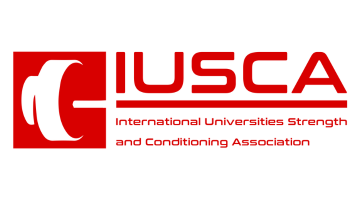

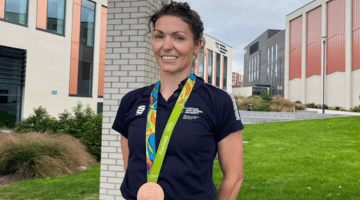
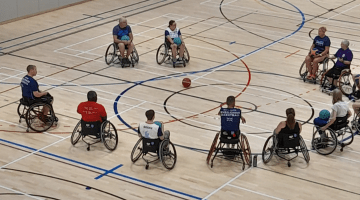
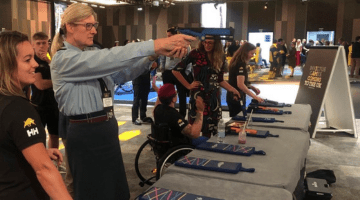

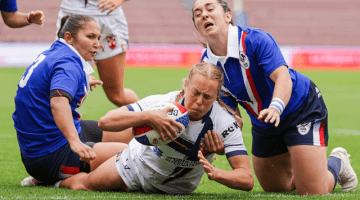
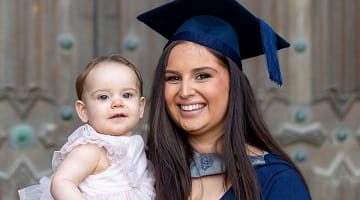

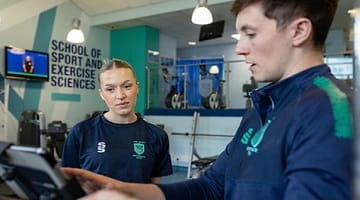
The University reserves the right to withdraw or make alterations to a course and facilities if necessary; this may be because such changes are deemed to be beneficial to students, are minor in nature and unlikely to impact negatively upon students or become necessary due to circumstances beyond the control of the University. Where this does happen, the University operates a policy of consultation, advice and support to all enrolled students affected by the proposed change to their course or module.
















